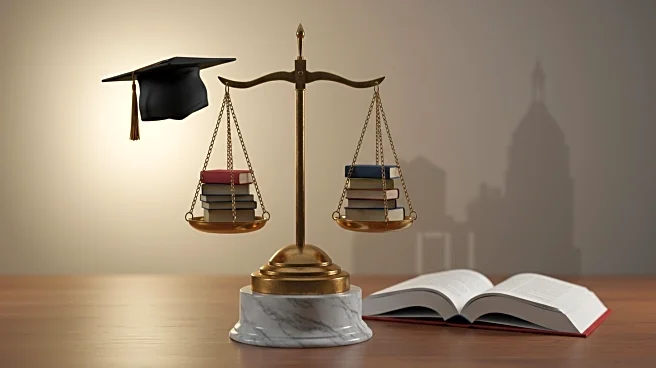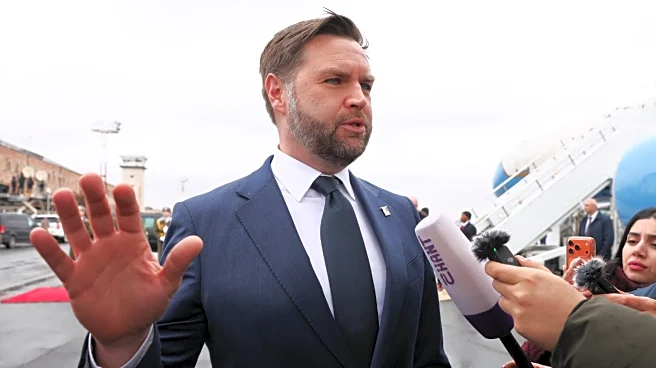What's Happening?
The Department of Education has proposed changes to the Public Service Loan Forgiveness (PSLF) program, potentially affecting thousands of borrowers. The new rule ties eligibility to the policies of borrowers' employers, excluding those engaged in activities deemed illegal by the Trump administration. These activities include gender-affirming care, diversity programs, and aiding undocumented immigrants. Critics argue that the rule represents government overreach and could limit free speech. The proposal aims to save $1.5 billion by narrowing eligibility, with public comment open until September 17. If finalized, the rule would take effect on July 1, 2026.
Why It's Important?
The proposed changes to the PSLF program could significantly impact borrowers pursuing careers in public service, particularly those working for organizations that may be deemed ineligible. This could deter graduates from entering low-paying, high-demand public service roles, affecting workforce availability in critical sectors. The rule's broad definition of illegal activities raises concerns about its potential to exclude organizations based on political or social ideologies, challenging the original intent of the PSLF program to support public service careers.
What's Next?
The rule is expected to face significant pushback during the public comment period, with potential legal challenges if finalized. Stakeholders, including student advocates and institutional lobbyists, may seek to influence the outcome through public comments and litigation. The Department of Education will need to address concerns about due process and the rule's alignment with federal statutes, potentially leading to revisions or court rulings.










